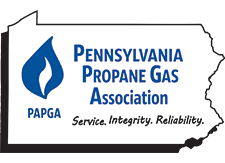A low-carbon future is something we can all agree is good for our planet, but how do we meet the increasing energy needs of the world and reduce carbon in our atmosphere? Propane is one solution. Its low-carbon, high-energy output makes it a perfect fuel for vehicle fleets, agriculture, shipping, industrial work and landscape management, just to name a few.
Propane. The Environmentally Friendly Energy for Everyone
Reducing carbon emissions is good for everyone – but how do we reduce emissions while also meeting our world’s increasing energy needs?
Using propane is an excellent way to reduce emissions while meeting energy needs. It’s a clean, non-toxic energy source that helps reduce carbon emissions – right now. Plus, the abundance of propane and growth of renewable propane means it can be used for generations to come.
That’s just one reason why millions of Americans rely on propane to heat their homes and businesses, fuel vehicles on-road and off, and much more, making propane the Energy for Everyone.
Path to Zero is a podcast focused on clean energy and the journey toward a low-carbon future. Zero emissions is a goal we can all get behind, but how do we meet the growing energy demands of the world AND reduce carbon in the atmosphere?
That’s the question Path to Zero guests and its host, Tucker Perkins, CEO of the Propane Education & Research Council, will be exploring. Topics include the clean energy continuum, “new urbanist” perspectives on clean energy, the challenge of a 2 centigrade change in the earth’s temperature poses, the science of warnings, and cities of tomorrow, just to name a few.
Subscribe today and learn who will be the next contributor to a great new idea: The Propane National Forest! Listen Now!
Why ‘Net Zero’ Is Important
“Net zero” refers to achieving an overall balance between emissions produced and emissions taken out of the atmosphere. Propane can help reduce CO2 emissions by replacing heavy carbons like coal, oil and even wood. Its affordability also ensures every consumer can share equitably in the benefits propane brings. Read more HERE.
View Propane’s Environmental Fact Sheet
How Propane is Becoming Even More Environmentally Friendly – Renewable Propane
As the world seeks energy sources that create less environmental impact and a smaller carbon footprint, the propane industry is at the forefront of that effort.
Propane is already environmentally-friendly: domestically produced, and clean-burning with almost zero greenhouse gas emissions. But renewable propane takes our work toward sustainability to the next level.
Read on to learn more about renewable propane, and what it can do for the environment we all cherish and want to protect.
Propane and Renewable Propane: What’s the connection?
Propane and renewable propane are molecularly identical. This means that they can be blended without the expense and labor of conversion. The difference is that they’re coming from different sources. The renewable sources that have been instrumental in perfecting the production of renewable propane to date include animal oils, vegetable oils, biomass and other triglycerides.
To be clear, sources that go into producing renewable propane are not only materials most consider to be waste. The feedstock for renewable propane can include plant matter like corn.
As time goes on, renewable propane can – and will – be used to fuel autogas fleets, commercial landscaping vehicles and construction machines.
The value of converting waste into energy can stand on its own, regardless of its impact on our consumption of fossil fuels.
Dimethyl Ether (DME): A helpful piece of the equation
A colorless gas whose molecules are known to be compatible with propane for many applications, including use as a transportation fuel, dimethyl ether (DME) is an integral part of the future of renewable propane.
Renewable DME is produced from carbon captured out of the atmosphere – including gas from cows, for example. The decarbonization of fossil propane is one very productive step in the right direction.
A blend of bio-DME combined with fossil propane offers a decarbonized option. And when the DME is combined with renewable propane, the benefits are even further increased.
Safe, Clean & Green
Compared with electricity, renewable propane – like propane – leaves a very small carbon footprint. Pair that fact with the volume of renewable propane that can potentially be produced in an economical way, and it becomes clear that this is a clean and green fuel, without a doubt.
The Significance of Energy Star
When you see a blue Energy Star label on propane equipment or a propane appliance, you know that the item you’re looking at produces less pollution and uses less energy than other, comparable products on the market.
In fact, the amount of pollution saved in one year as a result of consumers using Energy Star products was equal to 23 million cars’ worth of pollution. At the same time, they saved $12 billion.
The energy solutions we implement in the effort to address climate change cannot be addressed by any single source of fuel. Instead, we need to look at climate change as a broad challenge with several long-term, multifaceted solutions. Renewable propane is most definitely one of these solutions.
Always derived – at least partially – from a renewable source, renewable propane is an ideal option for times when functioning off the grid is either preferable or inevitable.
Clean Energy Reminders
You may be familiar with these points about propane, but keep in mind that they all hold true for renewable propane as well – and will prove to garner even more impressive results.
- A propane tankless water heater can prevent 3,000 pounds of CO2 from going into the environment annually.
- Propane-powered homes reduce CO2 use by 30% when compared with all-electric homes. This includes direct use of propane for space heating, water heating, cooking and clothes drying.
- Propane itself is not a greenhouse gas, and propane-powered homes reduce greenhouse gases by 50%.
Safe and Sound
It’s important to remember that propane and renewable propane alike are nontoxic. There’s no residue left behind, and both types of fuel are harmless to soil and water. And while a tank leak is quite unlikely for a well-maintained system, there are no risks to worry about in terms of home or property damage even if one does happen.
Learn more about the opportunities renewable propane offers by visiting RenewablePropaneGas.com.


 Mower Equipment
Mower Equipment
